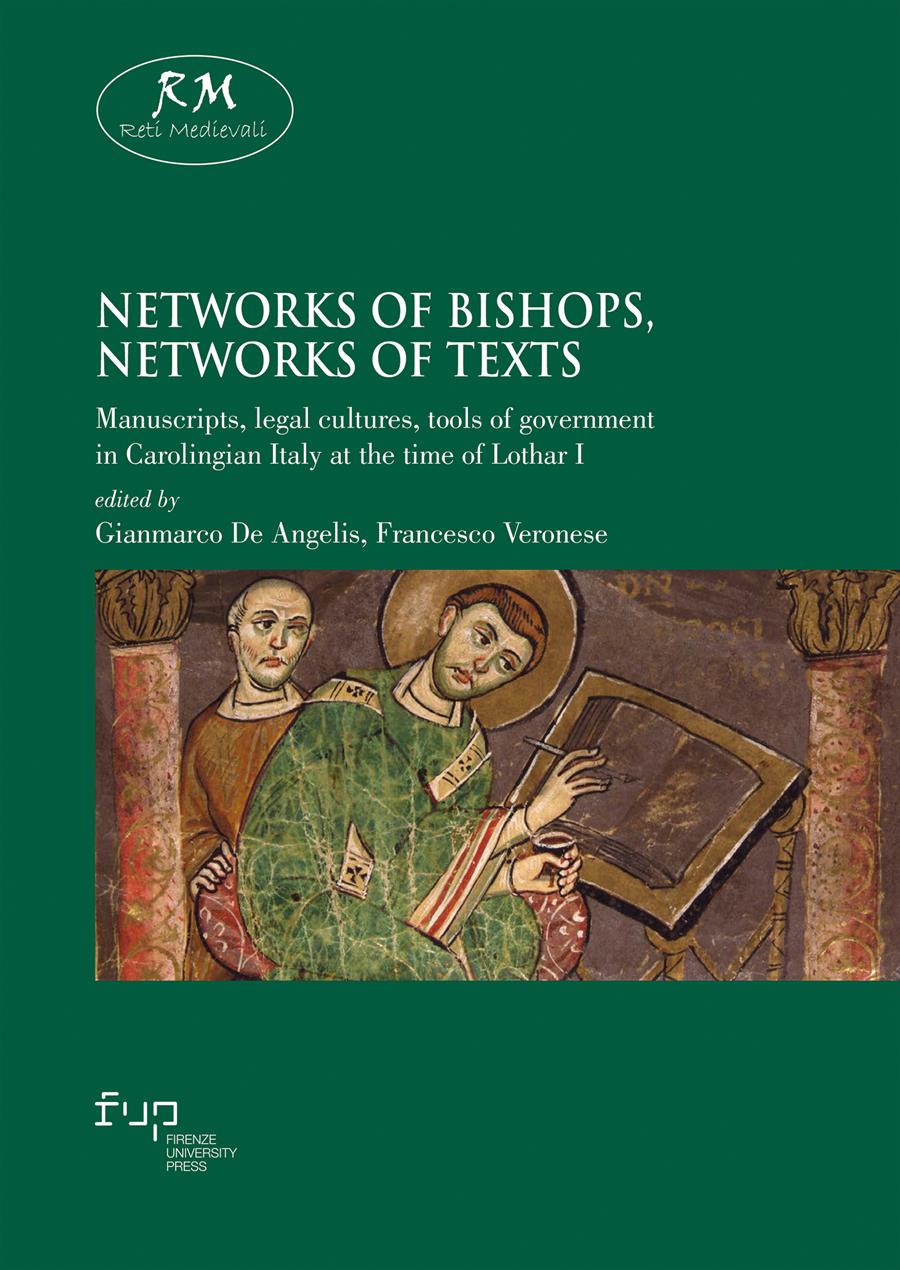ABOUT THE BOOK
This volume is the first one in a collection connected to the PRIN project on Ruling in hard times. Patterns of Power and practices of government in the making of Carolingian Italy. Its focus lays on bishops and their networks of relationships in late-8th and 9th-century Italy. The episcopal contribution to the inclusion of the Lombard kingdom in the Carolingian social and political landscape is especially analyzed from the perspective of the cultural exchanges (of ideas, texts, and manuscripts) that bishops created or used to carry out their public and pastoral duties. Each paper focuses on a specific episcopal figure or area, reconstructing the scope and extent of the relationships of which they were the pivot. The aim is to provide as comprehensive a picture as possible of the cultural networks that crossed Carolingian Italy and the ways in which bishops shaped and made use of them.
ABOUT THE EDITORS
Gianmarco De Angelis (University of Padua, Italy - ORCID: 0000-0002-1668-4510). Gianmarco De Angelis is Associate Professor of Medieval History at the University of Padova, where he teaches Sources and methods for Medieval History and Documentary cultures of Medieval Europe. His researches are focused on juridical pluralismus and practices of government in Early Medieval Italy and on social, cultural and political aspects of notaries’ activity from Lombard age to the emergence of city-communes. He also deals with the history of historiography and edition of documentary sources.
TABLE OF CONTENT
- Episcopal authority and networks in Carolingian times: recent approaches and perspectives, by Gianmarco De Angelis, Francesco Veronese
- Lothar’s manuscripts, manuscripts for Lothar, manuscripts of Lothar’s time, by Laura Pani
- A fragmentary story: episcopal culture in Milan during Lothar I’s reign?, by Miriam Rita Tessera
- The struggle for (self-)integration. Manuscripts, liturgy and networks in Verona at the time of Bishop Ratold (c. 802-840/3), by Francesco Veronese
- Canons, books of canons, and ecclesiastical judgments in Carolingian Italy: the Council of Mantua, 827, by Michael Heil
- Representations of Lothar I in the Liber pontificalis Ravennatis, by Edward M. Schoolman
- «Per Padum fluvium termino currente usque […] Civitatem Novam atque Mutinam». Consolidation and affirmation of the Church of Modena and its bishops in 9th-century Carolingian Italy, by Edoardo Manarini
- Writing, textuality, politics in the Lucca of Bishops Berengar and Ambrose (837-852), by Paolo Tomei
- The two versions of the life of Pope Sergius II in the Liber pontificalis. Anti-Frankish feeling in Rome after Louis II’s expedition of 844, by Maddalena Betti
- Conclusions, by Steffen Patzold
More information and the entire publication in open access can be found here.


No comments:
Post a Comment
Note: Only a member of this blog may post a comment.